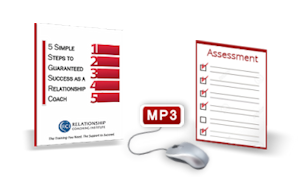 What is a “feeling?”
What is a “feeling?”
What does it really mean when a client says “I feel…” or a coach asks “How do you feel about…?”
“Feelings” can be emotions (anger, fear, love, sadness, etc) , physical sensations (hot, cold, tingly, painful, etc), intuition (your “gut”), mis-labeled thoughts/desires/judgments (“I feel like having vanilla ice cream.” “I feel like you’re wrong about that.”), etc. The word “feel” is so imprecise as to be useless and counter-productive in coaching or even everyday communication.
Coaching is most aligned with behavioral psychology in assuming that feelings/emotions are involuntary sensations that follow thoughts and actions. As coaches we help our clients get into action and identify interfering obstacles such as self defeating beliefs/attitudes/thoughts, which are overcome simply by choosing to move forward and past them, which can be done more effectively once you know what they are. There is no need to explore “why” they have these feelings/thoughts/beliefs.
For example, many clients want to feel more self confident and most coaches identify a need to boost our clients self confidence, but we can’t “coach” self confidence. Our client becomes self confident by moving forward and achieving their goals, not by working directly on the feelings or thoughts of self confidence or lack of self confidence.
In relationship coaching the strongest, most overwhelming feelings come up when our clients fall in love or break up a relationship. Can or should we address or “fix” these feelings?
Since feelings and emotions (meaning some kind of internal experience) are involuntary and reactive, we can’t change or coach them, and since this isn’t therapy there is no need to directly address them. Here at RCI we train you to use your Coaching Superpower to focus your client on what would move them forward in the present moment. Focusing on the past or an internal experience stops forward movement. If they truly are experiencing a strong emotion, they need to be supported to experience it and let it flow through, so coaching stops in that moment.
Guidelines for Addressing Feelings and Emotions in Coaching
1. Do not use the word “feelings” or “feel” with your clients in your statements or questions. “How do you feel about that?” is NOT a good coaching question for the reasons stated above.
2. Our language needs to be precise to be meaningful. The ONLY use of the word “feelings” should be in regards to emotions, not thoughts, opinions, intuition, etc. It is OK for a client to say “I don’t feel good about that” as we know what they mean, but it is NOT OK for a coach to use the word “feel” imprecisely, as stated above. Instead of “How do you feel about that? we need to use neutral language, such as “What’s your reaction to that?” or “How does that work for you?”
3, Allow your clients to experience their feelings, meaning EMOTIONS by pausing in the moment to support them and ask something like “What’s going on for you right now?” but do NOT explore, dive deep, or pursue focusing on feelings or the reason for their feelings. As mentioned above, focusing on feelings stops forward movement, so as soon as humanly possible get your client back onto the agenda moving forward.
4. We can’t coach “feelings” and help our client “feel” better (or anything), but we CAN coach them into action to achieve their measurable goals and they feel good as a result. Feeling is a reactive effect and success feels good and transforms someone’s life, both inside and out.
The Bottom Line
The word “feeling” is too imprecise to be used in coaching. In regards to emotions and anything else that the word “feeling” might be attributed to, they are reactive and involuntary. While we can support our clients in the moment when they experience a strong feeling, you can’t coach feelings, this isn’t therapy, your role is to move them forward towards the big goal they hired you for, so don’t lose focus on that.

